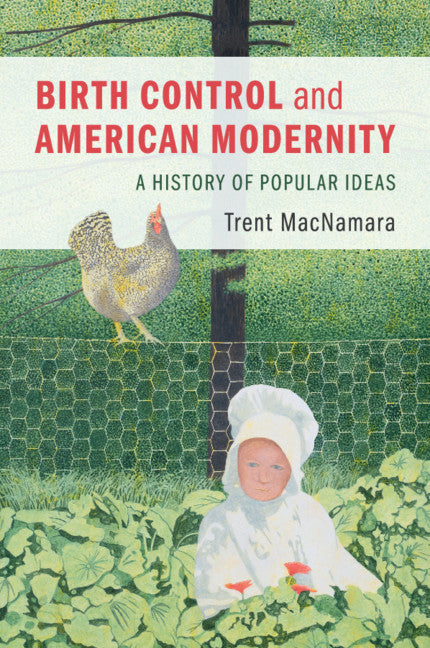Freshly Printed - allow 8 days lead
Couldn't load pickup availability
Birth Control and American Modernity
A History of Popular Ideas
MacNamara reveals how ordinary women and men legitimized birth control through private moral action, as opposed to public advocacy, in the early twentieth century.
Trent MacNamara (Author)
9781108460538, Cambridge University Press
Paperback / softback, published 19 December 2019
318 pages, 19 b/w illus. 8 tables
23 x 15.3 x 2 cm, 0.5 kg
'In his novel approach to examining birth control, MacNamara is quite successful in his attempts to bridge the gap between demographic and narrative histories of the topic. He focuses on why Americans chose to adopt methods to control fertility during the first half of the 20th century but also includes considerable information regarding the history of humans' attempts to prevent pregnancy, dating from antiquity to the present … The book also contains an appendix with detailed information and a bibliography that should be useful to scholars … Recommended.' J. M. Benowitz, Choice
How did birth control become legitimate in the United States? One kitchen table at a time, contends Trent MacNamara, who charts how Americans reexamined old ideas about money, time, transcendence, nature, and risk when considering approaches to family planning. By the time Margaret Sanger and other activists began campaigning for legal contraception in the 1910s, Americans had been effectively controlling fertility for a century, combining old techniques with explosive new ideas. Birth Control and American Modernity charts those ideas, capturing a movement that relied less on traditional public advocacy than dispersed action of the kind that nullified Prohibition. Acting in bedrooms and gossip corners where formal power was weak and moral feeling strong, Americans of both sexes gradually normalized birth control in private, then in public, as part of a wider prioritization of present material worlds over imagined eternal continuums. The moral edifice they constructed, and similar citizen movements around the world, remains tenuously intact.
1. The long history of birth control
2. Race suicide: the moral economy of birth control, 1903–08
3. Sensible as spinach: the moral economy of birth control, 1927–35
4. Dear friend: citizen letters to birth controllers
5. Missionary work: touring America for birth control
6. Marriage as it is: birth control on the radio
7. Conclusion and epilogue.
Subject Areas: History of medicine [MBX], 20th century history: c 1900 to c 2000 [HBLW], History of the Americas [HBJK]


